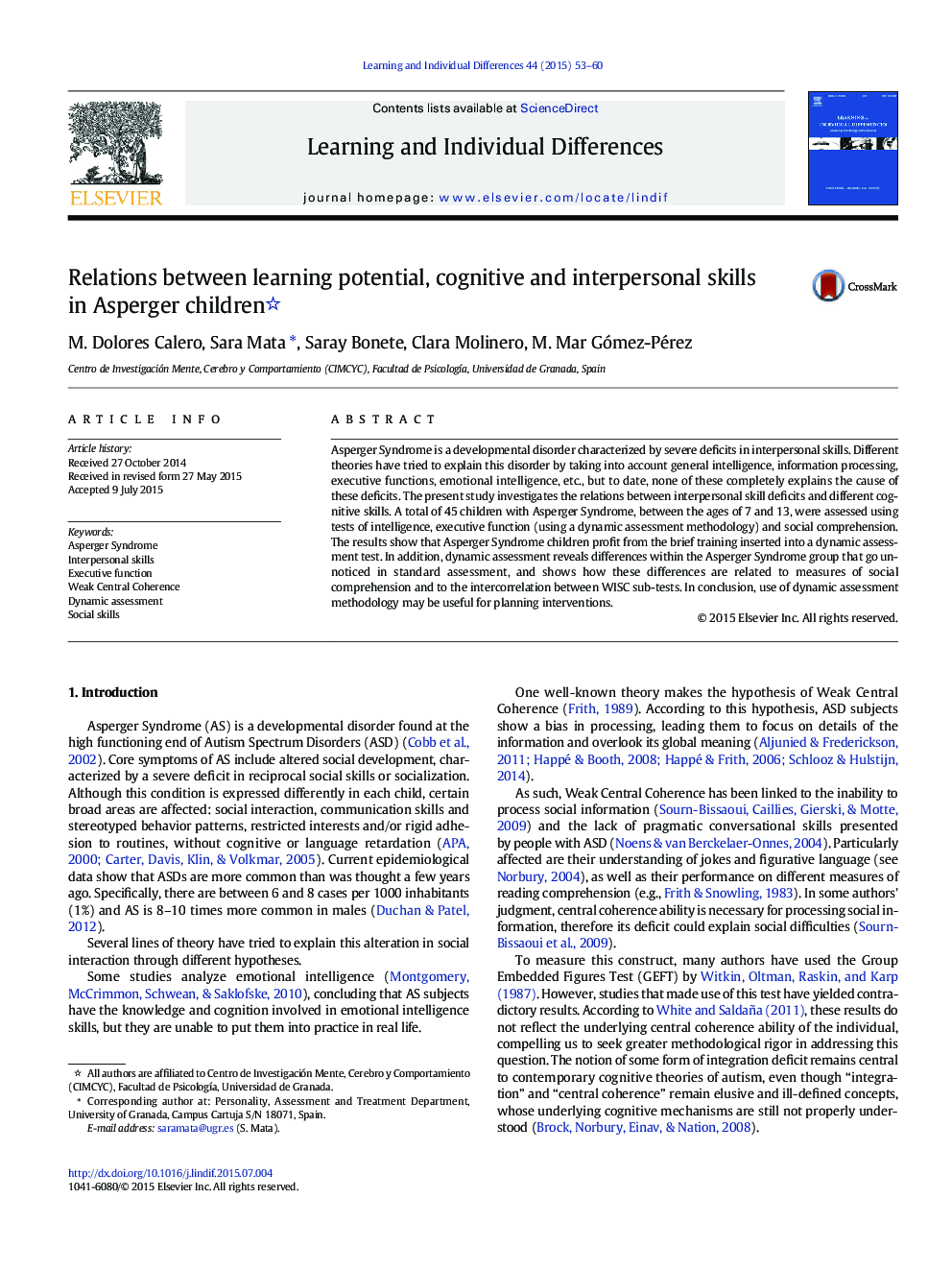| Article ID | Journal | Published Year | Pages | File Type |
|---|---|---|---|---|
| 364644 | Learning and Individual Differences | 2015 | 8 Pages |
Asperger Syndrome is a developmental disorder characterized by severe deficits in interpersonal skills. Different theories have tried to explain this disorder by taking into account general intelligence, information processing, executive functions, emotional intelligence, etc., but to date, none of these completely explains the cause of these deficits. The present study investigates the relations between interpersonal skill deficits and different cognitive skills. A total of 45 children with Asperger Syndrome, between the ages of 7 and 13, were assessed using tests of intelligence, executive function (using a dynamic assessment methodology) and social comprehension. The results show that Asperger Syndrome children profit from the brief training inserted into a dynamic assessment test. In addition, dynamic assessment reveals differences within the Asperger Syndrome group that go unnoticed in standard assessment, and shows how these differences are related to measures of social comprehension and to the intercorrelation between WISC sub-tests. In conclusion, use of dynamic assessment methodology may be useful for planning interventions.
